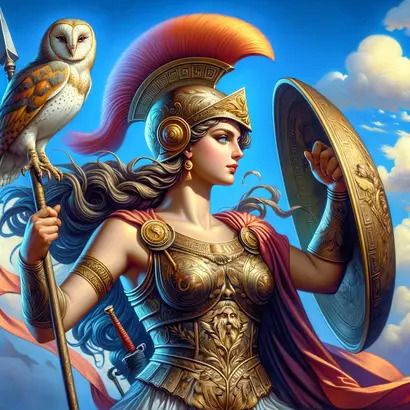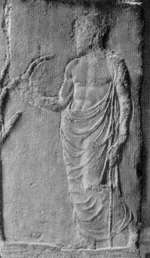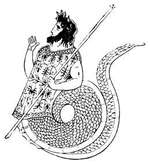
Aglaurus
Aglaurus :: The Athenian Princess
Aglaurus: The Athenian Princess and Her Role in Greek Mythology
The Birth and Family of Aglaurus
Aglaurus, a prominent figure in ancient Greek mythology, was an Athenian princess and daughter of King Cecrops, the mythical founder of Athens. Born alongside her sisters, Herse and Pandrosus, she played an essential role in the early history of Athens. Cecrops, a unique creature with a human upper body and a serpent's tail, was believed to have been the first king to establish a civilized society in Attica.
The Tale of Aglaurus and the Sacred Basket
In one of the most well-known stories involving Aglaurus, the goddess Athena entrusted the three sisters with a sacred basket containing the infant Erichthonius, a serpent-formed child of Hephaestus and the earth. Athena instructed the sisters not to open the basket until she returned. However, overcome by curiosity, Aglaurus and Herse disobeyed the goddess’s command and looked inside the basket, only to be driven mad by the sight of the serpent-child. In their madness, both sisters leaped from the Acropolis to their deaths.
Aglaurus and Hermes
In another myth, Aglaurus became intertwined with the story of the god Hermes and her sister Herse. Hermes, captivated by Herse's beauty, sought to court her. However, Aglaurus, envious of her sister, attempted to prevent Hermes from entering their home. As punishment for her jealousy and interference, Hermes turned Aglaurus into stone.
The Legacy of Aglaurus in Ancient Athens
Despite the tragic tales surrounding Aglaurus, she was honored in ancient Athens for her sacrifice. The Athenians held a festival called the "Aglauria" in her memory, which involved various rituals and offerings. A sanctuary dedicated to Aglaurus, known as the "Aglaurion," was also established on the Acropolis, further solidifying her place in Athenian history and Greek mythology.
Conclusion
In conclusion, Aglaurus, the Athenian princess, played a significant role in Greek mythology, with her stories reflecting themes of sacrifice, divine intervention, and the complexities of human nature. Her legacy continues to captivate those interested in the rich tapestry of ancient Greek myths and the early history of Athens.
See Also: Cecrops, Herse, Pandrosus, Erechtheus, Athena, Hephaestus, Gaea, Procris
Aglaurus Video
Aglaurus Q&A
Aglaurus Associations
Link/Cite Aglaurus Page
Written by: The Editors of GreekMythology.com. GreekMythology.com editors write, review and revise subject areas in which they have extensive knowledge based on their working experience or advanced studies.
For MLA style citation use: GreekMythology.com, The Editors of Website. "Aglaurus". GreekMythology.com Website, 23 Mar. 2023, https://www.greekmythology.com/Myths/Mortals/Aglaurus/aglaurus.html. Accessed 27 April 2024.






